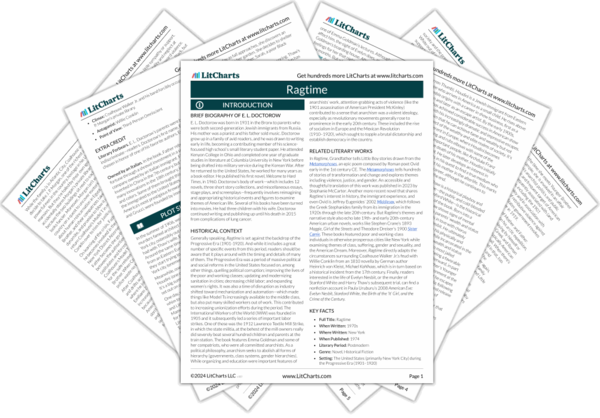Although Mother has behaved with more openness and acceptance, in the end, she demonstrates nearly as much casual racism as Father. They’re unable to see past their own privilege. Younger Brother understands this but cannot convince his brother-in-law or his sister to see what he does. However, the fact that he sides with Coalhouse and Sarah suggests that racial divides aren’t immutable. Instead, they’re socially constructed and propped up by the participation of those who benefit from division. And while the book has heavily hinted that Coalhouse won’t find justice in the end, the affinity between Younger Brother, Coalhouse, and Sarah offers hope that this need not be the case forever. If enough revolutionaries and people of conscience fight for justice, it will come.


